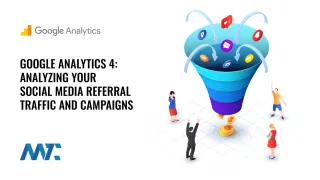Social media continues to be a vital tool for connecting with audiences, but B2B and B2C marketing strategies differ significantly. These distinctions arise from the unique nature of their audiences, goals, and engagement tactics, requiring tailored approaches for success.
Why B2B and B2C Social Media Strategies Differ
The core differences between B2B and B2C social media strategies stem from their target audiences’ contrasting needs and behaviors. Here’s a closer look at the key factors driving this divide.
- Audience and Decision-Making Process: B2B targets a professional audience with a multi-step, logic-driven purchasing process, while B2C appeals to individual consumers swayed by emotions and immediacy. This shapes everything from content to timing in each strategy.
- Content Type and Messaging: B2B content is often technical and solution-oriented, contrasting with B2C’s focus on entertaining and relatable material. Messaging aligns with what resonates most with each audience.
- Goals and Objectives: B2B aims to establish authority and nurture long-term relationships, whereas B2C seeks rapid engagement and instant conversions. These differing priorities influence the type of presence each builds on social platforms.
- Platform Preferences: B2B leverages platforms suited for professional dialogue, while B2C thrives on visually engaging, consumer-heavy networks. Choosing the right platform is critical to effectively reaching the intended audience.
- Sales Cycle and Engagement: B2B’s extended sales cycle demands ongoing trust-building, unlike B2C’s shorter cycle, which capitalizes on quick decisions. Social media’s role adapts to these timelines accordingly.
How B2B and B2C Strategies Are Executed Differently
Execution of B2B and B2C strategies varies in approach, reflecting their distinct objectives and audience interactions. These differences highlight how each model leverages social media uniquely.
- B2B Focuses on Expertise and Relationships: B2B strategies emphasize thought leadership and sustained engagement to position brands as industry experts. This often involves sharing in-depth resources and fostering professional connections.
- B2C Prioritizes Emotion and Mass Appeal: B2C strategies aim to capture attention quickly with emotionally resonant, widely appealing content. Campaigns often focus on trends and visuals to drive immediate consumer interest.
- Metrics of Success: Success in B2B is gauged by lead quality and relationship progression, while B2C measures impact through reach and direct sales. These metrics reflect the strategic goals of each approach.
- Tone and Language: B2B adopts a formal tone with industry-specific language, whereas B2C uses a conversational style to connect with everyday consumers. The voice chosen enhances audience reliability.
KPIs for B2B Social Media Marketing
There are distinct Key Performance Indicators (KPIs) for B2B social media marketing efforts (both paid and organic) compared to B2C, reflecting their differing objectives, audience behaviors, and sales processes. Below is a bulleted list outlining these KPIs with descriptions tailored to each approach.
- Lead Generation (LeadGen): Measures the number of potential business clients (e.g., sign-ups for webinars, eBook downloads) generated through social media, emphasizing quality over quantity for future sales nurturing.
- Engagement Rate: Tracks interactions (likes, comments, shares) on content like thought leadership posts or industry insights, indicating how well the audience connects with the brand’s expertise.
- Click-Through Rate (CTR): This measure assesses the percentage of users clicking on links in posts or ads (e.g., to landing pages or gated content), reflecting interest in deeper exploration of offerings.
- Cost Per Lead (CPL): This metric evaluates the cost-effectiveness of paid campaigns by calculating the expense per lead acquired. It is crucial for optimizing B2B ad spend with longer sales cycles.
- Content Downloads: Counts how often resources like whitepapers or case studies are downloaded, signaling intent and engagement from decision-makers.
- Relationship Progression: Monitors milestones like newsletter signups, follow-up inquiries, demo requests, or meetings booked, tracking how social efforts move prospects through the sales funnel.
Key Takeaways for B2B Marketers
Understanding the nuances can make or break a campaign for marketers navigating these strategies. Here are essential lessons to apply in B2B and B2C contexts.
- Leverage Professional Platforms: Invest heavily in LinkedIn and Twitter to connect with industry audiences where they network and seek information.
- Maintain a Professional Voice: Use a knowledgeable, industry-savvy tone that resonates with your audience while weaving in compelling storytelling.
- Play the Long Game: Build trust and relationships gradually, aligning your efforts with the extended B2B sales cycle to convert leads effectively.
- Prioritize Educational Content: Share valuable resources like whitepapers, case studies, and insights to establish credibility and nurture leads over time.
- Showcase Social Proof: Highlight customer results, testimonials, and use cases to build trust and demonstrate real-world value to potential B2B clients.
- Track Lead Quality: Measure success through meaningful metrics like lead generation, engagement with content, and progression toward sales conversations.
- Understand Your Decision-Makers: Focus on the needs, challenges, and preferences of business professionals and stakeholders to create targeted, impactful content.
The divide between B2B and B2C social media strategies reflects their unique audiences and purposes, from nurturing professional trust to igniting consumer passion. By tailoring tactics to these realities, marketers can unlock the full potential of social media for their specific goals.
